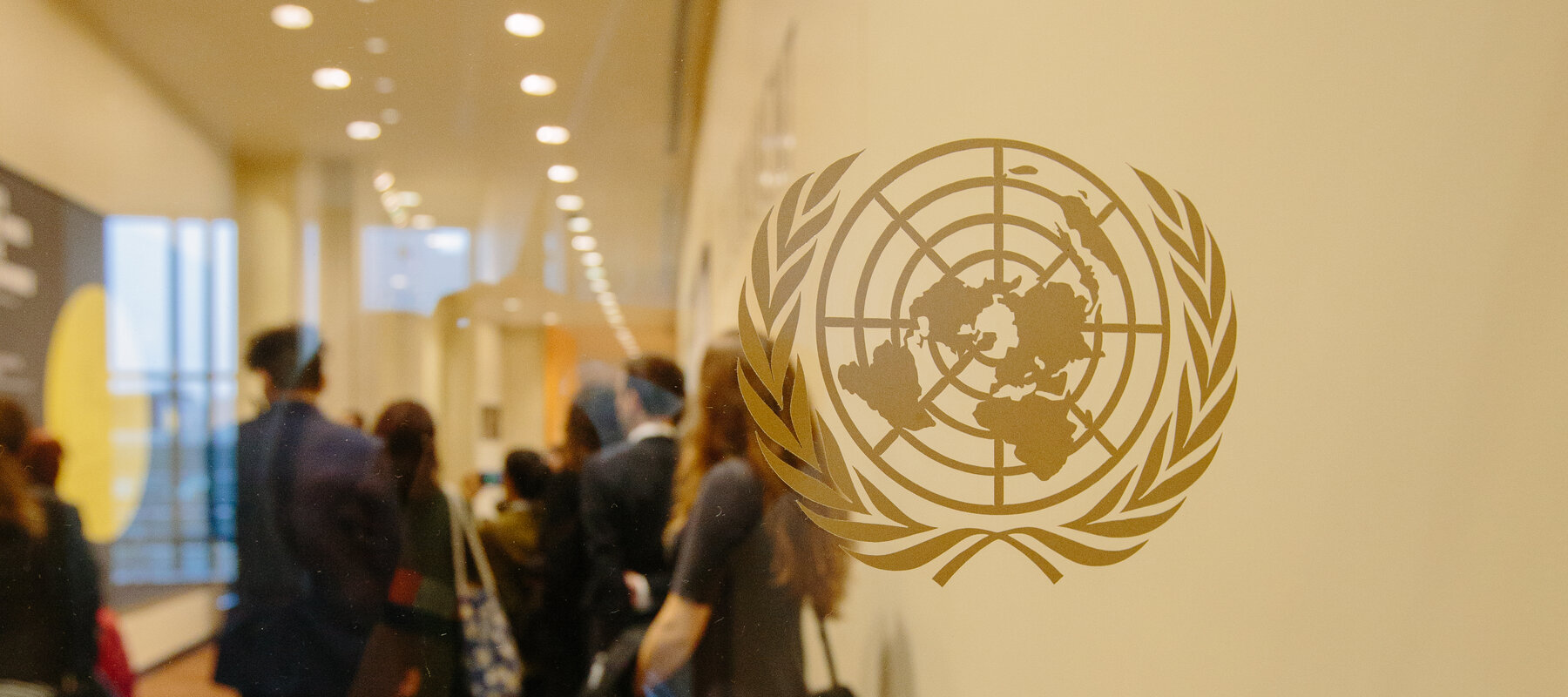This spring, an interdisciplinary team of students will start work on a new Inquiry to Impact project to commercialize the United Nations’ Sustainable Development Goals as part of the class, “Engaging the Private Sector in the UN SDGs” (CINQ 397-023).
The Sustainable Development Goals, or SDGs, are 17 global goals set by the UN General Assembly as part of The 2030 Agenda for Sustainable Development. They include ending poverty, providing quality education, investing in affordable clean energy, creating sustainable cities, addressing climate change and more.
Students in the class will work over several semesters to develop a certification program to endorse businesses that contribute to the SDGs. They will examine other certification systems, identify relevant metrics to assess businesses’ contributions to sustainability, identify the data that must be collected, and develop a business model to ensure that the program can become an ongoing enterprise.
The class is taught by Todd Watkins, Arthur F. Searing Professor of Economics, and Andrew Ward, Charlot and Dennis E. Singleton ’66 Endowed Chair in Corporate Governance.
It grew out of another class that Watkins and Ward taught in the spring 2017 semester in which graduate business students identified best practices for how companies can invest resources in achieving the SDGs, not as charity or for corporate social responsibility, but in their own financial self-interest. The students ultimately produced a series of case studies for the president of the UN General Assembly.
“It will take trillions of dollars to address the Sustainable Development Goals,” says Watkins. “The mantra in the sustainable development community is that unless it becomes of central interest to commercial enterprises, we’re just not going to solve these problems. There’s not enough money from governments and nonprofits.”
Watkins says that the certification program is a way to recognize and reward companies that pursue sustainability. They can then publicize their efforts.
Watkins and Ward decided to make their new class an Inquiry to Impact (I2I) project to allow students to dig deeper into how to commercialize the SDGs. I2I projects are student-driven, with support from faculty members, and interdisciplinary. They may continue over several semesters, with different teams of students examining the same issues.
The classes are part of how the Lehigh University-United Nations Partnership supports Lehigh’s mission of teaching, research and service—Lehigh is designated a Non-Governmental Organization by the UN, giving students, faculty and staff special access to the world’s largest intergovernmental organization.
Watkins says these classes give students the opportunity to understand different aspects of a complex issue like sustainability and see what companies are doing internationally and the realities of what works in global markets.
“They see that companies have the potential to do good and make a profit,” he says. “They don’t have to sacrifice one for the other.”
